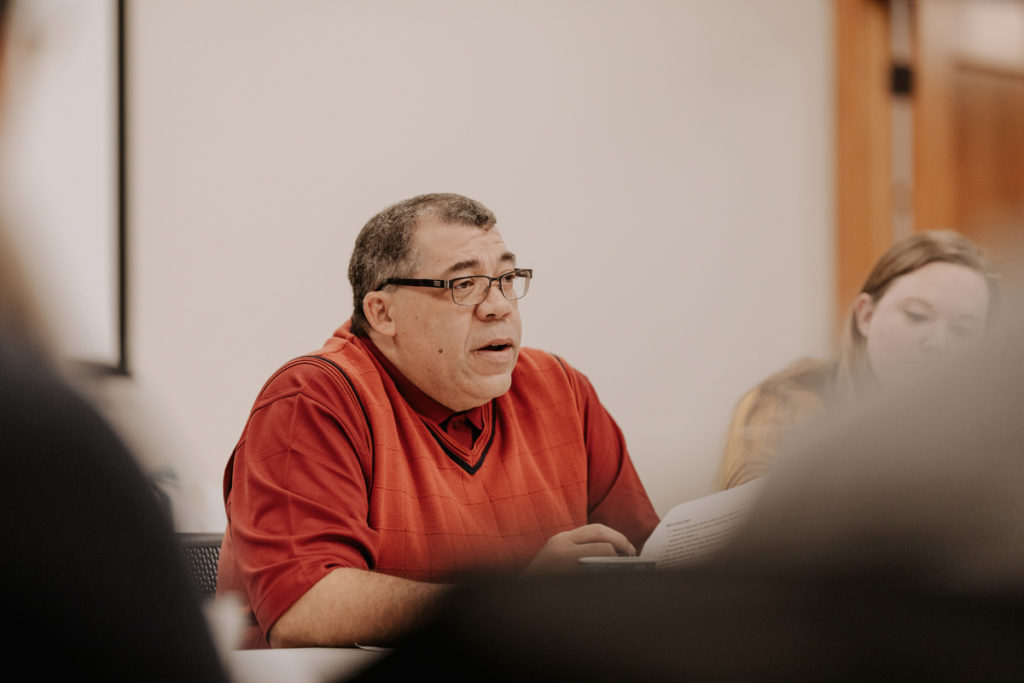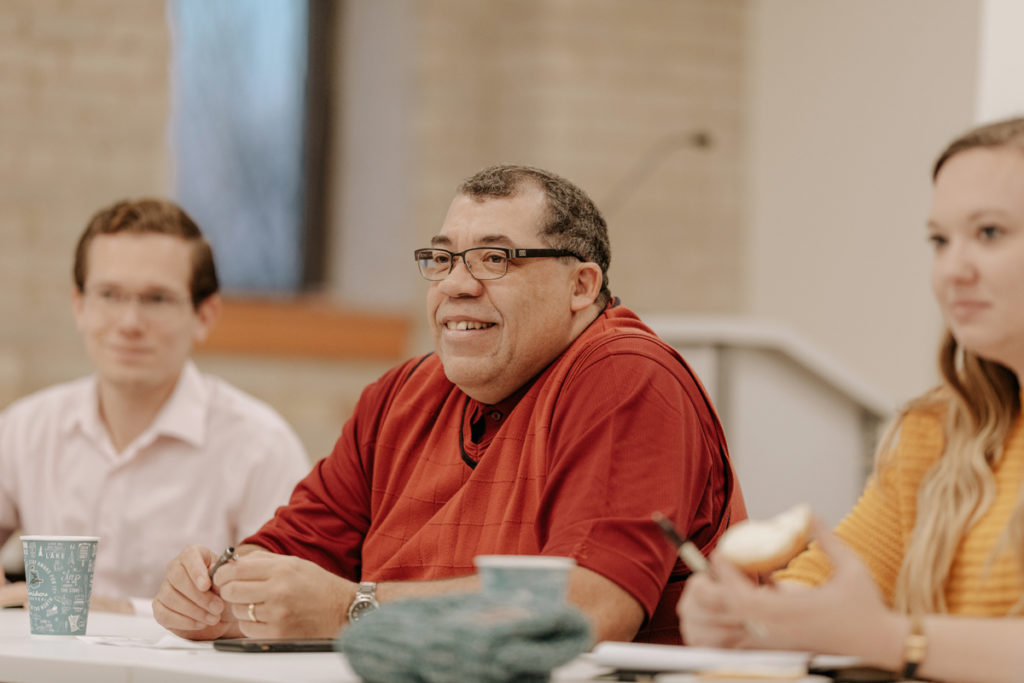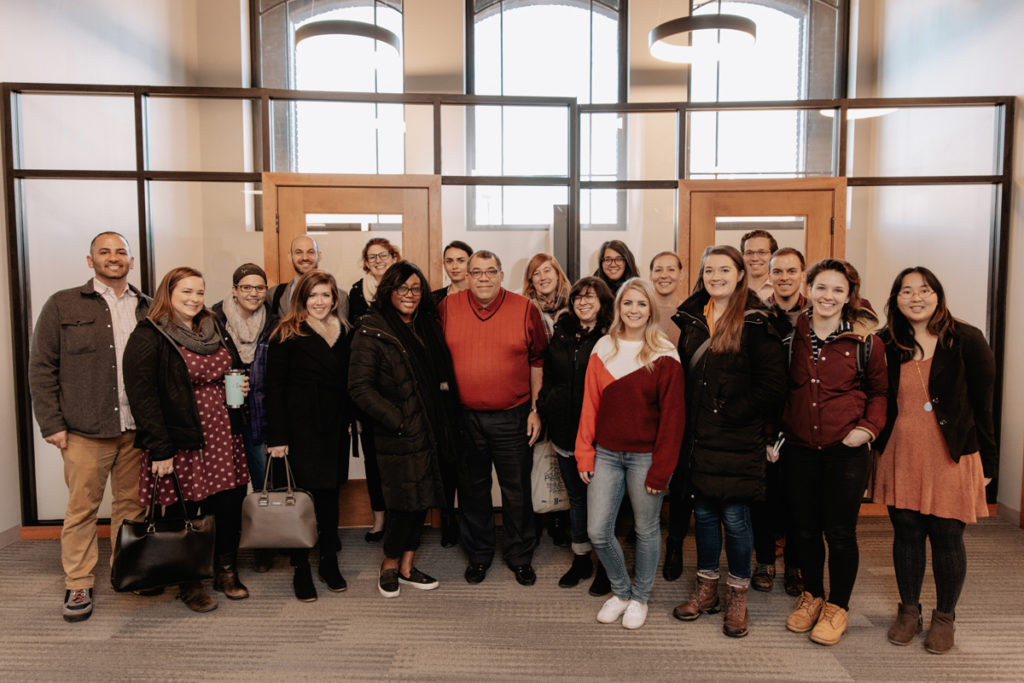
Words by Sarah Crumrine & Photos by J Olson
The Project for Pride in Living (PPL) building, formerly the Franklin Theater, provided a warm and inviting space for December’s YNPN Twin Cities Breakfast of Champions — the first external group to use the newly-renovated space. It was the perfect setting for young leaders to learn about community leadership from PPL’s President and CEO Paul Williams.
Paul was there to share insights into his path to leadership, from his beginnings in St. Paul to his current role at PPL. A major theme that emerged was the importance of community. That theme also echoes in PPL’s work — building the hope, assets, and self-reliance of individuals and families who have lower incomes by providing transformative affordable housing and employment readiness services.
Paul’s passion and commitment for the type of community building that PPL does began at an early age growing up in the Frogtown/Rondo neighborhood of St. Paul. Raised in a family that was deeply involved in community service, Paul attended rallies and demonstrations with his parents. “That is who I am, and that’s why I do what I do,” he said.
That passion followed him in his education. Despite being, in his own words, “a B-minus student,” he had people along the way that expressed confidence in him, inspiring him to continue following his goals.
Early on, someone told him something that stuck with him for years. “If you want to know what’s going on in the hospital, don’t start your interviews with the chief administrators of the hospital — go hang out with the night nurses,” he recalled. This idea — learning from the people closest to the action — resonated deeply with him, and jump-started a long line of work with meaningful program evaluation.
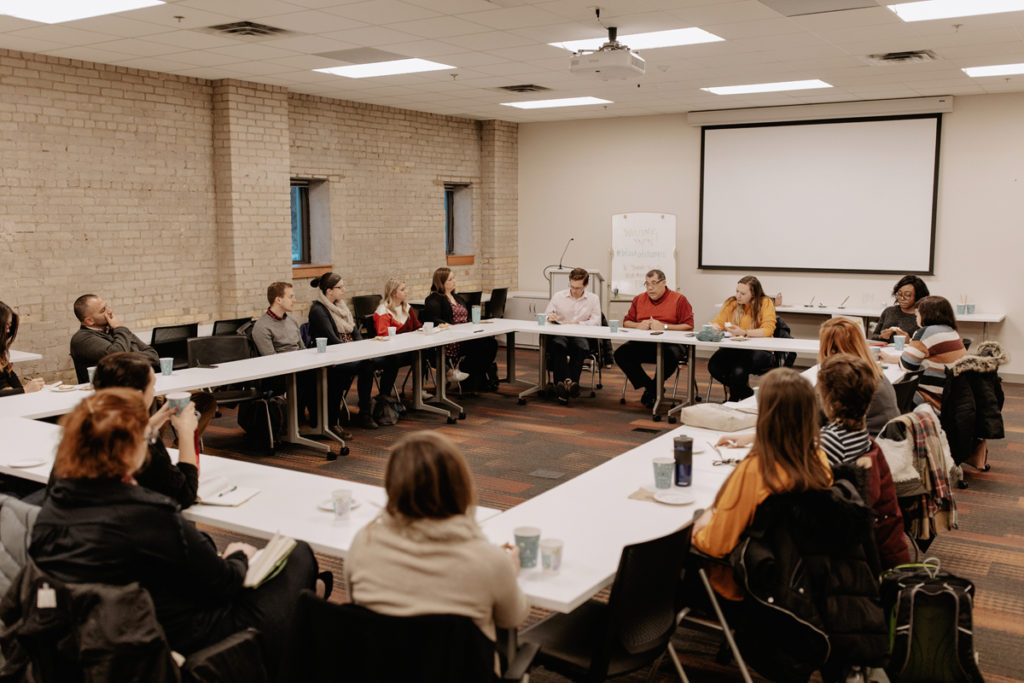
Program Evaluation Through a Community Lens
Paul did some consulting work focusing on evaluation before going into a decade of philanthropy work, helping funders work better in their communities. Paul stresses that he is a translator — able to connect the community he came from and knows deeply to the organizations working within them. “These are my people,” he said. His ability to relate and translate his own experiences to corporate boardrooms were helpful on both sides of the table.
His work on the foundation side helped him realize that he wanted to hit the ground running on the nonprofit side as well, and get closer to the “night nurses” in that world. “I wanted to get more into the action,” he said. He began working with LISC, a nonprofit bank that uses low-interest loan money to fund groups like PPL. This community work led him to become Deputy Mayor of St. Paul, chosen for the position by then-Mayor Chris Coleman, a longtime friend of his. In this position, he worked on the light rail expansion and the new St. Paul Saints stadium, continuing his work with community development and revitalization. Despite his love for this work with the city of St. Paul, he yearned to work even deeper in the community. When the position of President and C.E.O opened up at PPL, he decided to leave his role as Deputy Mayor to fulfill that yearning.
In each of these career moves, Paul’s goal was to continue adding skill sets to his repertoire, preparing for leadership and preparing to be a C.E.O. In addition to his skill as a translator, his ability to create a space that allows people to bring their full selves is one he grew and currently implements at PPL. He also focuses heavily on creating an environment that fosters equity. PPL has a deeply intentional approach to racial equity in hiring and board composition, and the number of staff members of color and board members of color have both increased under Paul’s leadership. “The organization needs to walk the walk, before we go outside and start talking the talk,” he said.
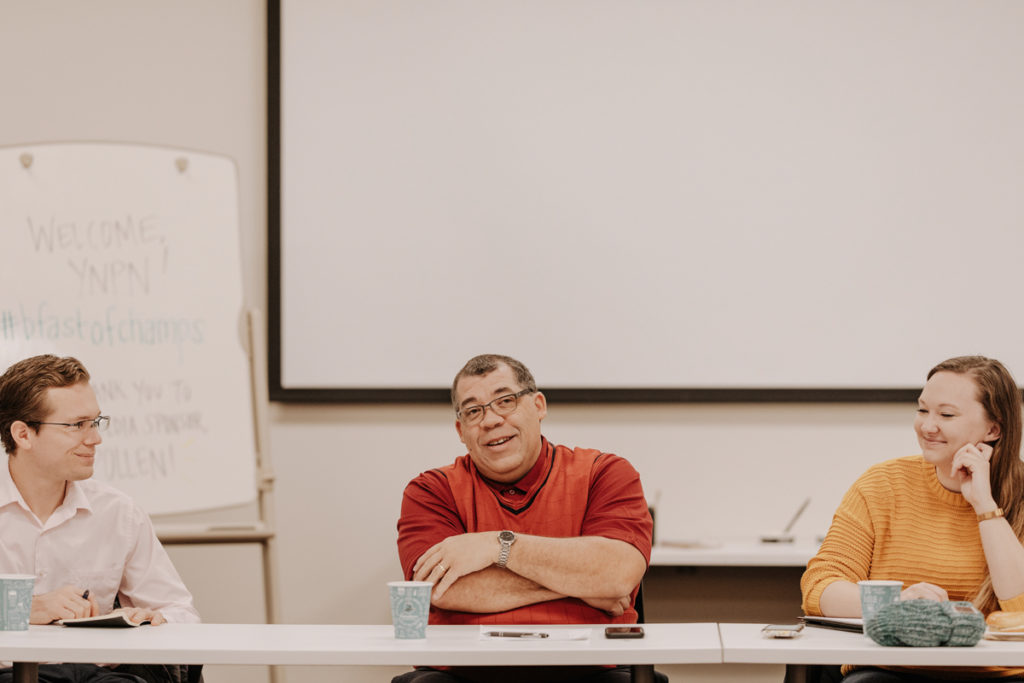
Advice on Career Growth
Paul offered words of wisdom to the group for their own careers. “Always keep your eyes on the horizon. Pay attention to the long haul. Pay attention to those skill sets,” he said. Paul stressed the importance of always looking at potential future opportunities, and to always be in conversations with people about what’s next.
He called on the group to consider what they’re trying to get done in their jobs, and let them know that it’s okay to accomplish that, and then find a new opportunity — but it’s also ok to take your time. “The opportunity that is there now will be there again,” Paul said. “If you’re good, that opportunity will be there several times.”
Paul also stressed the importance of loyalty and team, encouraging the young leaders to work with those around them to understand the needs of each person on their teams, and how success can be attained as a team. “Those relationships really do matter, and will follow you in many different places,” he said.
The leaders in the room were able to take a lot from Paul, learning the importance of relationships and how to build your skills at every stop. The theme of the morning, however, shone through each lesson and rang through the walls of the old Franklin Theater: community is key.
